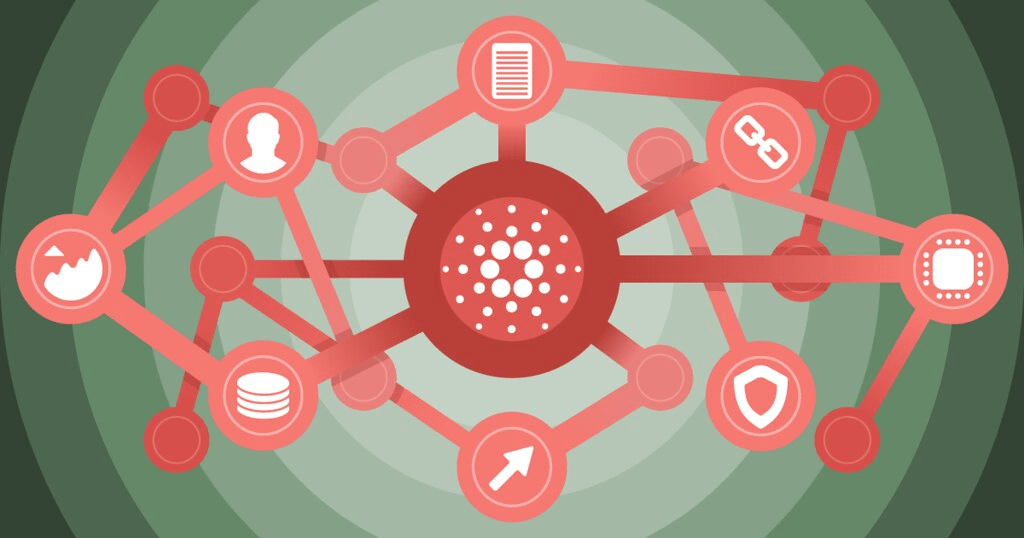DeFi protocols have been setting the crypto space ablaze, with their total value locked skyrocketing past $100 billion. This explosive growth has been propelled by the allure of financial innovation, the tantalizing prospect of massive gains, and the ever-deepening integration with major blockchain ecosystems like Cosmos. As adoption and investment into these emerging DeFi protocols goes stratospheric, trailblazers like Elys Network are spearheading the charge.
Elys Network is unquestionably one of the most thrilling and ambitious projects tackling the insatiable demand for DeFi. They're unleashing an innovative layer-1 blockchain platform jam-packed with features like a non-custodial AMM-style DEX, perpetual trading capabilities, and game-changing liquidity and staking solutions. These cutting-edge offerings empower both crypto veterans and DeFi devs to tap into a comprehensive suite of financial artillery.
We sat down with Mitchell Nishimura, the founder of Elys Network to dissect how their platform benefits crypto users and DeFi developers, as well as the groundbreaking changes they're igniting across the decentralized finance landscape.
1. What is the core mission of Elys Network, and how does it aim to achieve this mission?
Elys Network is a high-performance decentralized exchange (DEX) platform designed to cater to both new and experienced crypto users. It simplifies the crypto trading experience with intuitive user interface (UI) and user experience (UX), providing a seamless trading environment comparable to centralized exchanges (CEX). For beginners, Elys Network offers easy onboarding through account abstraction and on-off ramping capabilities, allowing quick access to trading and earning. Experienced traders benefit from advanced tools and strategies within a feature-rich, user-friendly platform.
As a Layer-1 blockchain, Elys Network connects seamlessly with various ecosystems like Bitcoin, Ethereum and Ethereum L2s as well as Solana. Its integration with Cosmos SDK chains ensures cross-chain interoperability, providing access to a broad spectrum of trading opportunities. Elys Network's mission is to deliver an efficient and comprehensive trading experience for all crypto users, emphasizing user experience, advanced trading features, and extensive cross-chain functionality.
2. Can you explain the key features and components of Elys Network, such as the layer-1 blockchain, decentralized exchange, and perpetual trading capabilities?
Elys Network addresses the fragmented DeFi landscape by offering a unified platform where users can access features like AMMs, perpetual exchanges, leverage LP, all in one place. It caters to both beginners and experts, streamlining the decentralized finance experience.
Elys has developed a Layer 1 blockchain optimized for trading, supporting all platform products and ensuring efficient user experience. The network's revenue model shares earnings among stakers and liquidity providers, enhancing each feature's utility and maximizing overall community returns.
By interconnecting its diverse features, Elys Network generates higher yields for users, distributing revenue in stablecoins to mitigate volatility. While holding the Elys token is optional, it maximizes yield opportunities. Elys Network aims to provide a comprehensive, user-friendly DeFi platform, offering seamless integration of various tools and unique value in the DeFi space.
3. How does Elys Network's open-sourced and decentralized architecture promote transparency, collaboration, and community-driven development?
Elys Network's open-sourced and decentralized architecture is designed to promote transparency, collaboration, and community-driven development. At the core of this approach is the use of a proof-of-stake chain built with the cosmos SDK, which fosters decentralization and empowers the community to shape the network's direction.
Every update and decision made by Elys Network will be voted on by stakeholders, ensuring that the community has a direct say in the platform's future. This commitment to decentralization is complemented by a strong emphasis on transparency and regulatory compliance. Elys Network prides itself on being among the most transparent projects implementing necessary measures to adhere to regulations.
The centrality of the community is a defining aspect of Elys Network's identity. The diverse community plays a significant role in shaping the future of the platform and actively guides newcomers in the ecosystem. Many users have joined thanks to the simplicity provided by the platform's wallet abstraction, and they are eager to delve deeper into the ecosystem created by Elys Network.
Elys Network actively collaborates with notable projects like Babylon, Lorenzo and Stride, continuously expanding its partnerships across various ecosystems to enhance its offerings and integrate more seamlessly with the broader DeFi landscape. This strategy ensures that Elys Network remains at the forefront of innovation, providing users with a robust, interconnected platform that maximizes their DeFi experience while maintaining transparency, decentralization, and community-driven development.
4. What are the benefits of Elys Network's non-custodial Automated Market Maker (AMM) style decentralized exchange (DEX) for crypto users and DeFi developers?
Elys Network's non-custodial Automated Market Maker (AMM) decentralized exchange (DEX) offers advanced features tailored for both crypto users and DeFi developers. Beyond a basic AMM, the DEX includes sophisticated tools to enhance trading efficiency and address common issues like impermanent loss (IL).
A standout feature is the Dynamic Weight Oracle Pools, which adapt weights based on buy and sell demand, minimizing IL compared to traditional fixed-weight pools. These pools also use vaults and adaptable fees to maintain balanced ratios and incentivize traders, simplifying the arbitrage process.
Another innovation is the Multi-Asset Pools, which support up to 8 assets and work like ETFs, allowing users to create diversified asset baskets with variable exposure. This provides a customizable investment approach, dense liquidity for the DEX, and stable USDC revenue for those seeking diversified exposure.
Elys Network's DEX facilitates trading with sophisticated tools for liquidity management and revenue generation, catering to diverse needs. Advanced features like Dynamic Weight Oracle Pools and Multi-Asset Pools empower users and developers with efficient trading, customizable investments, and revenue opportunities.
5. How does Elys Network's integration with the Cosmos ecosystem and leveraging of technologies like account abstraction and cross-chain interoperability enhance its capabilities?
Elys Network’s integration with the Cosmos ecosystem significantly enhances its decentralized exchange (DEX) capabilities by providing access to a wide range of projects and tools. Key integrations such as Lorenzo and Babylon enable native Bitcoin (BTC) integration and BTC liquid staking, crucial for robust DEX functionality.
Picasso offers Liquid Staking Tokens (LST) for Solana ecosystem tokens, facilitating seamless transfers between Solana and Cosmos through the secure Inter-Blockchain Communication (IBC) protocol. Additionally, Axelar’s integration supports cross-chain communication and asset transfers within the Ethereum Virtual Machine (EVM) ecosystem, allowing Elys Network to connect with EVM-based networks.
The integration with Noble ensures access to native USDC, enhancing stablecoin liquidity and simplifying cross-chain transactions. Beyond these integrations, the Cosmos ecosystem provides broader benefits such as Stride's liquid staking for tokens across the ecosystem, improving staking options and liquidity management. Particle Network's universal wallet and chain abstraction capabilities further streamline user experience and cross-chain interactions.
By leveraging the Cosmos ecosystem, Elys Network not only taps into Cosmos but also gains pathways to multiple blockchain ecosystems, creating a comprehensive and efficient DeFi platform. This interconnected approach is essential for providing a unified and versatile trading experience on the DEX.
6. In what ways does Elys Network prioritize accessibility, security, and scalability, and why are these factors crucial for widespread adoption of DeFi?
Elys Network prioritizes accessibility, security, and scalability to drive widespread DeFi adoption. Leveraging the Cosmos ecosystem's proof-of-stake (PoS) model ensures robust security and flexibility through the customizable Cosmos SDK. This enables Elys to optimize its blockchain specifically for trading, addressing performance and scalability challenges.
A key feature is Interchain Security (ICS) V2, which secures Elys Network by utilizing part of the Cosmos Hub's validators and the market cap of ATOM, reducing incentive costs while maintaining high security. This innovative approach offers economic sustainability and lower security costs for projects.
Elys Network enhances accessibility by integrating account and chain abstraction, combined with a user interface similar to centralized exchanges (CEXs). This design simplifies user interaction, making the platform intuitive for all users and allowing seamless asset management and trading across different blockchains like Bitcoin / Solana / EVM chains without needing to understand their complexities.
These strategies underscore Elys Network's commitment to creating a user-friendly, secure, and scalable DeFi platform, bridging traditional and decentralized finance by harnessing the strengths of the Cosmos ecosystem while optimizing for trading needs.
7. Can you elaborate on Elys Network's innovative liquidity and staking solutions, and how they benefit the platform's ecosystem?
Staking is central to Elys Network's Layer 1 blockchain, offering various innovative staking solutions to enhance user engagement and reward mechanisms. The platform provides multiple staking options to cater to different user preferences and incentivize participation across activities.
A notable feature is USDC staking, where users stake their USDC, making it available to leverage liquidity providers (LPs). USDC stakers earn yield from fees charged to LPs, thus contributing to the platform's liquidity and earning rewards.
Elys Network also includes an ELYS staking mechanism, where stakers receive a portion of the platform's daily revenue in stablecoins and additional incentives in EDEN, a reward token convertible to ELYS. This encourages ELYS holders to actively engage with and support the ecosystem.
The revenue distribution model is designed to reward various activities: liquidity providers earn a share of DEX revenue in USDC, USDC stakers gain interest from lending fees, and both ELYS and EDEN stakers receive a portion of DEX revenue in USDC.
By offering diverse and attractive staking options along with a robust revenue distribution model, Elys Network aims to build an engaging and rewarding ecosystem. This supports the platform's health, growth, and fosters a thriving decentralized finance (DeFi) environment.
8. How does Elys Network aim to bridge the gap between traditional finance and DeFi, fostering financial sovereignty for all?
Elys Network's ultimate goal is to bridge the gap between traditional finance and DeFi, fostering financial sovereignty for all. The platform's features empower users with complete freedom to make their own choices, without the restrictions of traditional finance, as long as the blockchain is running.
Respecting privacy, Elys Network does not require KYC from users, although some products may be geo-blocked to comply with regulations. The aim is to provide simple and complex solutions for all types of users, with easy on-boarding.
Compared to the typical 2% return offered by banks, Elys Network enables users to put their USDC to work for a much higher potential return, with the freedom to withdraw and deposit as desired, in just two clicks. These returns are based on the usage of the platform's features and increase with more users, distributed automatically on-chain, allowing users to collect earnings daily.
Elys Network believes this represents the evolution of decentralized finance: simple, effective, and universally accessible products that foster financial sovereignty for all.
9. What role does community-driven development play in ensuring a self-sustaining ecosystem for Elys Network?
Community-driven development plays a crucial role in ensuring a self-sustaining ecosystem for Elys Network.
We have already incorporated a significant amount of feedback from our users into recent updates. Every day, we gather feedback, evaluate it, and integrate valuable suggestions into our features. Listening to the community is key to delivering a product that meets user needs. This quality-driven approach is often overlooked in the web3 ecosystem, where user-friendly interfaces can sometimes be lacking. By prioritizing community input, we ensure that our platform is not only functional but also accessible and intuitive for everyone.
Regarding the potential groundbreaking changes Elys Network could bring to the decentralized finance ecosystem, one of our primary goals is ensuring accessibility for everyone, everywhere, to our DEX. We aim to defragment Web3, making it effortless and fast to trade tokens from various ecosystems, including Solana, Bitcoin, and any EVM chains. Elys Network is your gateway to a truly seamless and integrated DeFi world.
Our mission is to provide a unified platform that simplifies and streamlines the DeFi experience, regardless of the underlying blockchain technology. By bridging different ecosystems and offering a user-friendly interface, we aim to revolutionize the way users interact with decentralized finance.
Disclaimer: This article is provided for informational purposes only. It is not offered or intended to be used as legal, tax, investment, financial, or other advice.



